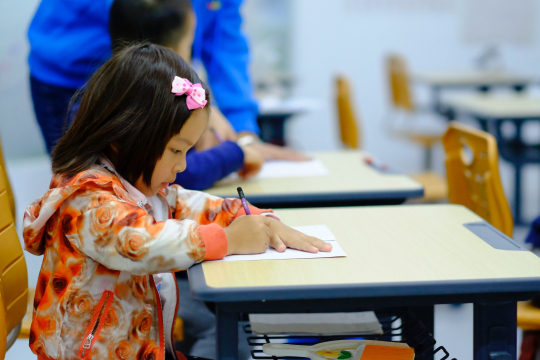
13 Jan How To Recognize Early Signs Of Dyslexia In Preschoolers
As children develop from their toddler years into preschool, there is often an associated explosion of language and abilities. They learn to speak using complete and refined language, use their hands and bodies with more dexterity and agility, and are able to control bowels, which is life-changing for the parents as well as the child.
With this rapid development, it is helpful for parents to watch out for key signs of dyslexia in preschoolers that will lead to future academic success.
How to recognize dyslexia in preschoolers?
Does your child…
- Know the correct way to hold and handle a book
- Understand directions of words and lines on a page (words left to right; lines from top to bottom)
- Able to identify rhyming words
- Able to retell main parts of stories as well as some details
- Know most letters of their names
- Starting to make sound symbol relationships (e.g., k /k/, m /m/)
- Recognizes some printed words (e.g., names, common words)
- Categorizes items (e.g., foods, toys)
- Pronounces most speech sounds but can struggle with hard ones: r, s, sh, ch, y, v, z, th, which do not develop until 7 or 8
- Able to be understood by strangers easily
- Able to write some letters
- Can identify some beginning or ending sounds in words when enunciated sounds
Every child is different, and not all children will be able to complete all of these milestones. If you are finding that your child is lacking in many of these areas as they go through their preschool years, it may be helpful to arrange a dyslexia evaluation for your preschooler to determine what might be causing the delay.
Read Next:
Identify Dyslexia In Preschoolers With Dr. Malkin
Identifying dyslexia in preschoolers can be a challenge, considering all the developmental leaps and bounds children make at this age. That’s where a comprehensive dyslexia evaluation can help. Dr. Malkin can identify if your preschooler has a learning disability and determines the cause or causes of the condition with a comprehensive assessment. He also helps determine the most effective learning and teaching styles to help your child succeed with individualized, dedicated attention.